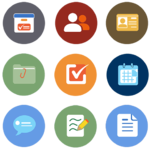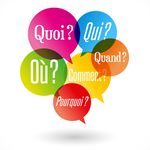Différences entre versions de « Authentic Assessment »
| Ligne 50 : | Ligne 50 : | ||
*Alternative Assessment is a method of assessment that measures a student's level of competence in a subject rather than their level of progress. The overall goal of this type of assessment is to allow students to demonstrate their knowledge and perform tasks. | *Alternative Assessment is a method of assessment that measures a student's level of competence in a subject rather than their level of progress. The overall goal of this type of assessment is to allow students to demonstrate their knowledge and perform tasks. | ||
| − | ... | + | |
| − | . | + | * Authentic assessment is a form of assessment that evaluates a student's learning and achievement in a real-world context, with tasks and activities that closely mimic the challenges and demands of the actual environment in which the knowledge and skills will be applied. |
| + | |||
| + | *Unlike traditional assessments, such as multiple-choice tests or standardized exams, authentic assessments typically involve performance-based tasks, observations, and student-produced work that require higher-order thinking, problem-solving, and creativity. Examples of authentic assessments include portfolio assessments, case studies, simulations, and project-based assessments. | ||
| + | |||
| + | *Authentic assessment is often seen as a more meaningful and effective approach to evaluation, as it allows educators to assess a student's ability to apply knowledge and skills in a practical setting, rather than just testing their ability to memorize and recall information. It also promotes deeper learning, as students are required to engage with the material in a more active and personalized way. | ||
<!-- ******** Fin Définition Générale ***************************** --> | <!-- ******** Fin Définition Générale ***************************** --> | ||
Version du 11 mars 2023 à 23:24
 Traduction
Traduction
 Définition
Définition
Domaine, Discipline, Thématique
Définition écrite
- Alternative Assessment is a method of assessment that measures a student's level of competence in a subject rather than their level of progress. The overall goal of this type of assessment is to allow students to demonstrate their knowledge and perform tasks.
- Authentic assessment is a form of assessment that evaluates a student's learning and achievement in a real-world context, with tasks and activities that closely mimic the challenges and demands of the actual environment in which the knowledge and skills will be applied.
- Unlike traditional assessments, such as multiple-choice tests or standardized exams, authentic assessments typically involve performance-based tasks, observations, and student-produced work that require higher-order thinking, problem-solving, and creativity. Examples of authentic assessments include portfolio assessments, case studies, simulations, and project-based assessments.
- Authentic assessment is often seen as a more meaningful and effective approach to evaluation, as it allows educators to assess a student's ability to apply knowledge and skills in a practical setting, rather than just testing their ability to memorize and recall information. It also promotes deeper learning, as students are required to engage with the material in a more active and personalized way.
....................................................................... ....................................................................... .......................................................................
....................................................................... ....................................................................... |
Définition graphique
 Concepts ou notions associés
Concepts ou notions associés
 Exemples, applications, utilisations
Exemples, applications, utilisations
................................................................................ ................................................................................ ................................................................................
................................................................................ ................................................................................ ................................................................................ |
 Erreurs ou confusions éventuelles
Erreurs ou confusions éventuelles
- .........................................
- .........................................
![]() Confusion possible ou glissement de sens
Confusion possible ou glissement de sens
- Confusion entre ....... - ........
- Confusion entre ....... - ........
- ....................
 Questions possibles
Questions possibles
 Liaisons enseignements et programmes
Liaisons enseignements et programmes
Idées ou Réflexions liées à son enseignement
Aides et astuces
Education: Autres liens, sites ou portails
 Bibliographie
Bibliographie
Pour citer cette page: (Assessment)
ABROUGUI, M & al, 2023. Authentic Assessment. In Didaquest [en ligne]. <http:www.didaquest.org/wiki/Authentic_Assessment>, consulté le 4, décembre, 2024
- ..................
- ..................
- ..................
- ..................





